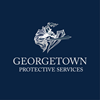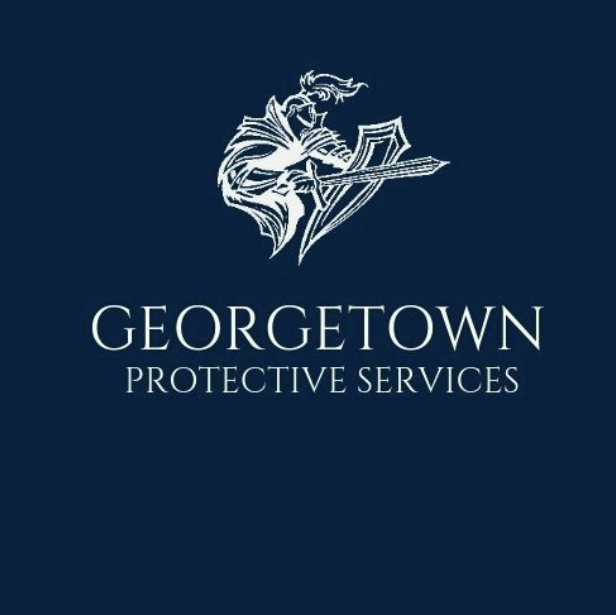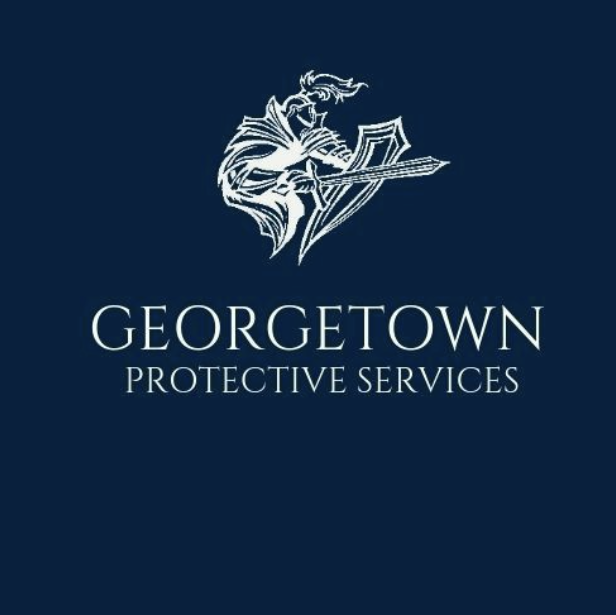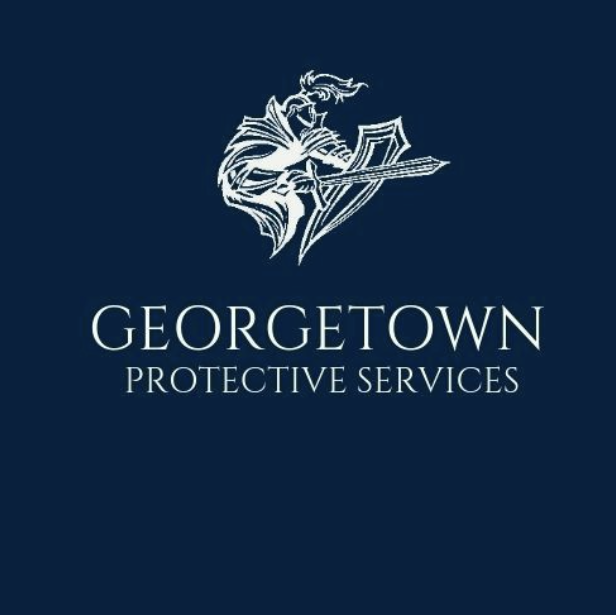Whether you're a business owner concerned about property protection, an event coordinator planning a major gathering, or a homeowner seeking peace of mind, understanding security service pricing isn't just helpful—it's essential for making informed decisions that protect what matters most. In today's complex security landscape, costs vary dramatically based on specific needs, location, and service level. This comprehensive guide breaks down exactly what security companies charge in 2025, the factors that influence pricing, and how to ensure you're getting maximum value without compromising safety. Drawing from current market research and industry expertise, we'll navigate the sometimes confusing world of security pricing so you can confidently choose the right protection for your specific situation.
Estimated Reading Time: 16 minutes
Key Takeaways
- Security company rates in 2025 range widely by service, region, contract type, and guard qualifications.
- Major metropolitan areas can expect 15–30% higher charges compared to rural settings.
- Premium rates reflect experienced personnel, advanced certifications, and integrated technology solutions.
- Negotiation and clear service requirements are key to maximizing value.
- Transparent pricing and reputable providers offer better risk management and peace of mind.
At-a-Glance: Typical Security Company Charges in 2025
Before diving into details, here's a snapshot of what you can expect to pay for various security services in 2025:
| Service Type | National Average Rate | DC/MD/VA/WV Region |
|---|---|---|
| Unarmed Security Guard | $25-35/hour | $28-40/hour |
| Armed Security Guard | $35-65/hour | $40-75/hour |
| Event Security | $30-50/hour per guard | $35-60/hour per guard |
| Mobile Patrol | $45-75/hour | $50-85/hour |
| Executive Protection | $75-150/hour | $85-175/hour |
| Monthly Contract (24/7 coverage) | $12,000-$25,000/month | $15,000-$30,000/month |
Regional Variations: Security costs typically run 15–30% higher in major metropolitan areas like Washington DC compared to rural locations. The Mid-Atlantic region generally commands premium rates due to higher training requirements and cost of living.
Security Service Pricing Models Explained
Security companies offer several distinct pricing structures, each designed for different client needs:
Hourly Rates
- Special events (galas, concerts, weddings)
- Temporary security needs
- Supplemental coverage during high-risk periods
Hourly rates provide maximum flexibility but typically cost more per hour than contract arrangements. For businesses needing occasional coverage, this model prevents overpaying for unused service time.
Flat Monthly or Annual Contracts
- Regular, ongoing security needs
- Businesses requiring consistent protection
- Properties needing 24/7 coverage
These arrangements usually offer the best value for consistent security needs. Companies typically discount hourly rates by 10–20% for clients willing to commit to longer terms. A 12-month contract generally provides the most competitive pricing.
Bundled or Package Deals
- Physical guard services plus remote video monitoring
- Access control systems with monitoring response
- Regular patrols combined with alarm response services
Package pricing typically saves 10–25% compared to purchasing services individually, making them particularly attractive for comprehensive security planning.
Retainer and Custom Pricing
- Executive protection
- High-value asset security
- Specialized security needs with varying requirements
Retainer models guarantee availability while allowing flexible service utilization, typically with a minimum monthly commitment plus variable costs based on actual services used.
Key Factors That Influence Security Company Pricing
Understanding what drives security costs helps you identify where you might save money—and where cutting corners could be risky.
Type of Service
Armed vs. Unarmed: Armed guards typically cost 40–60% more than unarmed personnel due to additional training, licensing, insurance, and liability costs. Consider whether visible deterrence of unarmed guards might suffice for your needs.
Specialized Services: Executive protection, K-9 units, or guards with specific certifications (such as Counter-Terrorism Training or Advanced First Aid) command premium rates, often 50–100% above standard guard services.
Guard Experience and Credentials
Security personnel pricing tiers typically include:
- Entry-level (1–2 years experience): Base rate
- Mid-level (3–5 years): 15–25% premium
- Veteran (5+ years): 30–50% premium
- Specialized background (military/law enforcement): 40–75% premium
Client Location
Urban centers like Washington DC command higher rates than suburban Maryland or rural West Virginia locations. Additionally:
- High-crime areas increase rates by 10–20%
- Remote locations requiring extended travel add surcharges
- Multi-floor buildings or large properties require more personnel or time
Scheduling Factors
- Overnight shifts (typically 15–30% more)
- Weekend coverage (10–25% additional)
- Holiday protection (50–100% premium)
- Emergency or last-minute staffing (up to double standard rates)
Duration and Contract Length
- One-time service: Highest hourly rate
- 3-month contract: 5–10% discount
- 6-month contract: 10–15% discount
- 12-month+ contract: 15–25% discount
Technology and Equipment Requirements
Additional costs may include:
- Guard tour systems: $500–2,500 initial setup plus monthly fees
- Body cameras: $25–75 per guard per month
- Vehicles for patrol: $150–300 daily
- Communication equipment: $15–50 per guard per shift
Company Reputation and Certifications
Premier security firms with extensive credentials (Georgetown Protective Services' focus on comprehensive risk management) typically charge 15–30% more than budget providers, but deliver superior reliability, training, and risk mitigation.
Real-World Example Pricing Scenarios
Small Business Protection
Retail Store in Georgetown, DC
- One unarmed guard during business hours (10 hours/day, 6 days/week)
- Monthly cost: Approximately $7,500–9,000
- Additional after-hours alarm response: $75–150 per incident
Office Building in Bethesda, MD
- Lobby security with access control management
- One security officer, business hours only
- Monthly cost: $6,000–8,000
- Add weekend coverage: Additional $1,200–1,800/month
Residential Security
Luxury Apartment Complex in Arlington, VA
- 24/7 coverage with two security posts
- Monthly cost: $22,000–28,000
- Including access control and visitor management
Gated Community in Martinsburg, WV
- Gate guard 12 hours daily plus overnight mobile patrols
- Monthly cost: $12,000–16,000
- Per-household cost in 200-home community: $60–80 monthly
Event Security Coverage
Corporate Gala in Washington DC (300 guests)
- 6 security personnel for 6 hours
- Total cost: $1,500–2,500
- Including pre-event security assessment
Weekend Wedding at Virginia Estate
- 3 security officers
- 12-hour coverage
- Total cost: $1,300–1,800
Corporate Security
Regional Headquarters (150 employees)
- 24/7 coverage with access control
- Monthly cost: $30,000–40,000
- Including emergency response planning
Executive Protection
C-Suite Executive with Travel Requirements
- Personal protection officer during business hours
- Advanced planning and threat assessment
- Monthly retainer: $15,000–25,000 plus daily rates when traveling
How Security Companies Calculate and Set Their Fees
Understanding the underlying costs helps you recognize where there's room for negotiation—and where security companies have little flexibility.
Cost Components
The breakdown of what you're actually paying for:
- Guard wages: 40–60% of the rate
- Taxes, insurance, benefits: 15–25%
- Equipment and technology: 5–15%
- Training and certification: 5–10%
- Management and overhead: 10–20%
- Profit margin: 10–20%
Markup Methods
Companies typically use one of three approaches:
- Cost-plus pricing: Basic calculation of costs plus predetermined profit margin
- Value-based pricing: Rates based on perceived value to client rather than costs
- Competitive pricing: Rates set primarily in relation to local competition
Transparent vs. Opaque Pricing
Quality security providers like Georgetown Protective Services offer transparent pricing with clear breakdowns of services. Watch for companies that:
- Bundle costs without explanation
- Add unexpected fees after contract signing
- Use complex contract language to obscure actual costs
Verifying Fair Value
To ensure you're getting what you pay for:
- Request guard qualifications and training verification
- Review company insurance coverage and licensing
- Check for proper employee screening practices
- Verify supervision and quality control measures
Practical Tips for Clients to Maximize Value and Control Costs
Effective Negotiation Strategies
- Request volume discounts for multiple locations
- Negotiate reduced rates for longer contract terms
- Ask about seasonal pricing if your needs fluctuate throughout the year
- Consider sharing security resources with neighboring businesses
Cost-Saving Approaches
- Combine human guards with technology solutions
- Adjust coverage hours to focus on highest-risk periods
- Integrate security with other functions (reception, facility monitoring)
- Standardize post orders to increase efficiency
Red Flags in Quotes and Contracts
- Rates significantly below market average (often indicates underqualified personnel)
- Unclear cancellation terms
- Vague language about guard qualifications
- Missing insurance details
- Excessive overtime charges
Essential Questions Before Hiring
- "What specific training do your officers receive?"
- "How do you handle call-offs or no-shows?"
- "What supervision structure ensures quality service?"
- "Can you provide client references with similar security needs to mine?"
- "What exactly is included in your quoted rate, and what might trigger additional charges?"
Frequently Asked Questions (FAQ)
Q: Can security companies negotiate prices?
Yes, most security firms have flexibility—especially for long-term contracts or clients with multiple service needs. The best approach is to clearly outline your budget constraints while focusing on your non-negotiable security requirements.
Q: What is included in a standard security guard rate?
Standard rates typically cover the guard's time, basic uniform, standard communication equipment, supervision, and liability insurance. Additional services like specialized equipment, vehicles, or enhanced reporting usually incur extra charges.
Q: How do cancellation, overtime, or emergencies impact cost?
Most companies require 24–72 hours' notice for cancellation without charge. Short-notice cancellations typically incur a 50–100% fee. Overtime rates range from 1.5–2x the standard rate, while emergency callouts may cost 2–3x normal rates due to rapid deployment requirements.
Q: Are there cost differences between local and national security firms?
National firms often have higher overhead costs, resulting in rates 10–20% above local providers. However, local firms with strong reputations (like Georgetown Protective Services in the DC, Maryland, Virginia, and West Virginia regions) often provide more personalized service with comparable resources at competitive rates.
Expert Insights and Credibility Markers
When evaluating security services, remember that the cheapest option rarely delivers the best protection. According to the Security Industry Association's latest research, companies that invest in higher-quality security services typically experience:
- 60% fewer security incidents
- 40% reduction in associated losses
- Significant improvements in employee and customer confidence
The Department of Homeland Security recommends viewing security as risk management rather than simple expense control. Their studies show properly implemented security measures deliver ROI beyond incident prevention through operational improvements and reduced insurance premiums.
How to Request and Compare Quotes
Step-by-Step Quote Request Process
- Prepare detailed requirements documentation including:
- Exact hours and locations needed
- Specific duties and responsibilities
- Any special certifications required
- Equipment or technology needs
- Request quotes from 3–5 reputable providers
- Include local specialists like Georgetown Protective Services
- Mix of national and regional providers
- Companies with experience in your specific industry
- Ensure each quote specifies:
- Base hourly rates
- Overtime/holiday policies
- Minimum billing increments
- Additional fees or charges
- Supervisor coverage and frequency
- Guard qualifications and training
- Create a standardized comparison matrix focusing on:
- Total monthly/annual cost
- Guard qualifications and experience
- Supervision ratio and quality control measures
- Technology integration capabilities
- Response procedures for emergencies
- Contract flexibility
Remember that the lowest bid rarely represents the best value. Focus on the provider that best balances competitive rates with quality assurance, proper training, and industry expertise.
Conclusion
Security service pricing reflects numerous variables beyond simple hourly rates. The most effective approach to managing security costs isn't finding the cheapest provider—it's identifying the service that delivers the right protection at the right price point for your specific needs.
In 2025's increasingly complex security environment, comprehensive risk assessment should guide your decision-making process. By understanding the factors that drive security pricing, you can make informed choices that protect your people, property, and assets without unnecessary expense.
Remember that quality security is an investment, not merely an expense. The right provider delivers peace of mind while potentially reducing insurance premiums, preventing losses, and creating a safer environment for everyone involved.
As you evaluate options, look beyond the bottom line to partner with security professionals who understand your unique needs and can design protection strategies that address your specific vulnerabilities.
Georgetown Protective Services provides Comprehensive Risk Management and Security solutions throughout Washington DC, Maryland, Virginia, and West Virginia. As a Disabled Veteran owned security company specializing in Executive Protection and Security Guard Services, we bring military-grade precision to private security needs. Contact us today for a customized security assessment and transparent pricing proposal tailored to your specific requirements.



